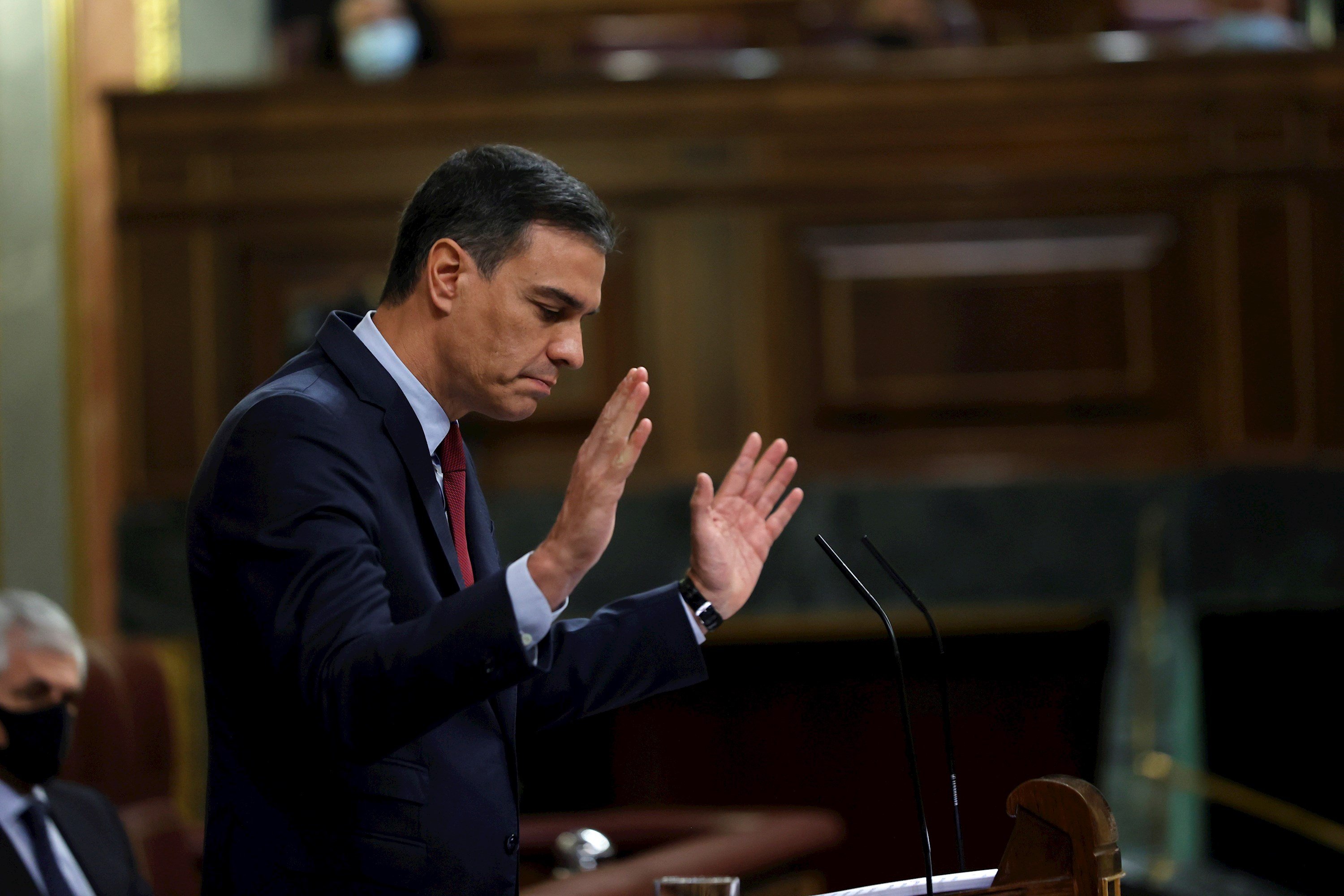Pedro Sánchez's appearance before Congress this Wednesday was officially convened to report on the European Council meeting. But the Spanish PM took the issue of Catalonia by the horns, first speaking about the pardons for the political prisoners and the dialogue with the Catalan government. The day after his meeting with president Pere Aragonès in Madrid, the Socialist leader wanted to be, as the old saying goes, "clear and Catalan": "There will be no referendum on self-determination unless they manage to convince three-fifths of Congress. The PSOE will never accept this kind of development." That was his promise to those who might have "reservations" toward the pardoning of the pro-independence leaders. He also guaranteed asserted that this policy "will be applied whenever it is necessary."
Thus, the Spanish prime minister began his appearance before Congress rooting for "the integrative spirit of the Constitution", which is based on "dialogue" and "concord". With this decision to grant pardons, Sánchez argued, "we are opening a new phase" in Catalonia and Spain. He noted that the clemency measure had been granted "after 44 months in prison" and that it was a "fully legal and constitutional" measure, in the face of the gesticulations of the right and far right. He recalled how former prime minister Aznar had given more than 18,000 pardons and Rajoy more than 800, "and they were not questioning the actions of the courts."
The Socialist leader made a point of differentiating the pardon from the concept of an amnesty, because the former "does not deny the existence of the crime or the responsibility of the perpetrators", but rather "it only means forgiveness". He then noted that the pardons are partial and conditional and that there are reasons of public utility to grant them. Although "it will not definitively resolve" the conflict, the Spanish executive is convinced that "it may help to alleviate the division and facilitate dialogue." He pointed out how many people who are not pro-independence believe this in Catalonia. He sold the move as "the first response to the serious social and political crisis" that Catalonia is going through.
On the other hand, Sánchez resorted to his standard script to repeat several times that "in Spain there is room for all democratic ideas, including pro-independence ones". And to claim that the state is "one of the 23 full democracies in the world". Accordingly he countered pro-independence assertions by saying that "it is not true to say that people have been persecuted for their ideas."
Sánchez also wanted to address Pablo Casado and the Popular Party, to demand that they conduct "a statesman-like opposition" and stop their blockade of constitutional organs, such as the General Council of the Judiciary. As to all the political parties, he made a plea to be "able to recover the constituent spirit, focus on solutions and look for points of agreement."
"The judicial process alone is not valid to guarantee social co-existence in Catalonia," said Pedro Sánchez, who demanded that the work of politicians should not be delegated to the courts. He also aimed at Pere Aragonès the call for "Catalonia to talk to Catalonia", to convene the table of political parties in Parliament. "It's time for politics and the Spanish government will do politics," he concluded.
"Bombing Barcelona once every fifty years"
In a subsequent speech in reply, Sánchez was especially critical of Pablo Casado, whom he accused of "generating hatred and discord among Spaniards" with his petition tables to collect signatures against the pardons. He rebuked the PP who have "no project" for Catalonia, only to "nourish themselves" from the conflict. He accused Vox leader Santiago Abascal of having the same proposal as the nineteenth century politician Espartero, who said "that for the good of Spain, Barcelona must be bombed once every fifty years".
Main image: Spanish PM Sánchez in the Congress of Deputies, in Madrid / Photo: EFE

